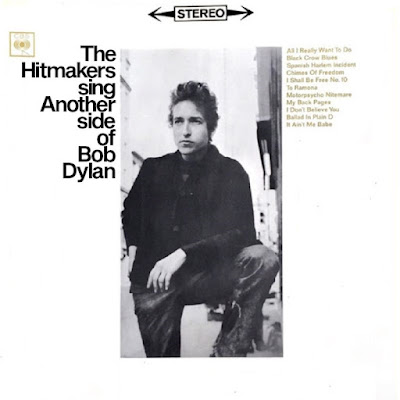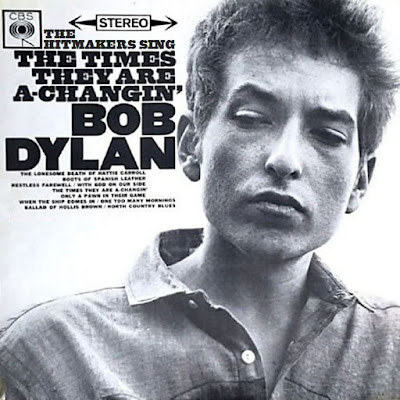Stephen Ray Vaughan was born on 3 October 1954 in Dallas, Texas, and began playing guitar at age seven, initially inspired by his elder brother, Jimmie Vaughan. Learning by ear, he diligently committed himself, following along to songs by the Nightcaps, and he listened to blues artists such as Albert King, Otis Rush, and Muddy Waters, and rock guitarists such as Jimi Hendrix and Lonnie Mack. In 1963, he acquired his first electric guitar as a hand-me-down from Jimmie, and soon after he joined his first band, the Chantones, in 1965. Following a falling out with the other members he left the band and joined the Brooklyn Underground, playing professionally at local bars and clubs. In May 1969, after leaving the Brooklyn Underground, he joined a band called the Southern Distributor playing pop rock covers, but he tried to add blues songs to the group's repertoire, even though he was told that he wouldn't earn a living playing blues music, and so he and the band parted ways. In February 1970, Vaughan joined a band called Liberation, which was a nine-piece group with a horn section, and at a gig at the Adolphus Hotel in downtown Dallas he was asked onstage by ZZ Top to jam with the band. In September 1970 Vaughan made his first studio recordings with the band Cast Of Thousands, which included future actor Stephen Tobolowsky, recording two songs for the compilation album 'A New Hi', which featured various teenage bands from Dallas. In late January 1971 he left Liberation and formed his own band Blackbird, moving from Dallas to Austin, Texas, as he felt they had more liberal and tolerant audiences. After a couple of years Vaughan left Blackbird and joined Krackerjack, staying with them for less than three months, and then joined Marc Benno's band, the Nightcrawlers, reuniting with Benno after meeting him at a jam session some years before.
The next month, the Nightcrawlers recorded an album at Sunset Sound Recorders in Hollywood for A&M Records, and although the record was rejected by A&M, it did include Vaughan's first songwriting efforts, 'Dirty Pool' and 'Crawlin''. In 1975 Vaughan joined a six-piece band called Paul Ray And The Cobras, which included guitarist Val Swierczewski and saxophonist Joe Sublett, and for the next two-and-a-half years he earned a living performing weekly at the Soap Creek Saloon and at Antone's, which was widely known as Austin's 'home of the blues'. In late 1976 the band recorded a single, with Vaughan playing guitar on both tracks, which was released in February 1977, and the band carried on touring for most of the rest of that year. Near the end of September he left the band and formed Triple Threat Revue, recording some tracks in an Austin studio in January 1978, but in mid-May the bassist left to form his own group and Vaughan renamed the band Double Trouble, recruiting new bass-palyer Jackie Newhouse, and by October that band had a residency at one of Austin's most popular nightspots, the Rome Inn. Following some line-up changes, the group settled on bassist Tommy Shannon and drummer Chris Layton, and in 1982 they performed at the Montreux Jazz Festival, where David Bowie saw Vaughan play and contacted him for a studio gig, resulting in him playing his blues guitar on six of the eight songs on Bowie's 1983 album 'Let's Dance', including the iconic solo at the end of the title track.
With the success of 'Let's Dance', Bowie requested Vaughan as the featured instrumentalist for the upcoming Serious Moonlight Tour, and in late April he began rehearsals for the tour in Las Colinas, Texas, but when contract renegotiations for his performance fee failed, he abandoned the tour days before its opening date, and he was replaced by Earl Slick. Double Trouble had recorded some tracks at Jackson Browne's studio after Browne had jammed with them in Montreux and offered free use of his studio, and after acquiring the recordings Double Trouble began assembling the material for a full-length album, to be called 'Texas Flood'. After knocking the album into shape, it was released on 13 June 1983, and peaked at number 38 on the US charts, ultimately selling half a million copies. In January 1984, Double Trouble began recording their second studio album 'Couldn't Stand The Weather', with John Hammond as executive producer and engineer Richard Mullen, and during recording sessions Vaughan began experimenting with other combinations of musicians, including Fran Christina, Stan Harrison, and Jimmie Vaughan. 'Couldn't Stand The Weather' was released on 15 May 1984, and two weeks later it had rapidly outpaced the sales of 'Texas Flood', peaking at number 31 on the US album chart.
The success of the band's two albums, added to his recognition at playing with Bowie on 'Let's Dance', meant that he was often asked to guest on other artist's work, adding his guitar to records by Lonnie Mack, James Brown, and Jennifer Warnes among others. The recording with James Brown was for the soundtrack to the 1985 film 'Rocky IV', but it wasn't without it's troubles, as apparently Vaughan was so upset by how low his guitar parts had been mixed that he left in a helicopter never to return. The songs were edited for release as a single, and about four minutes had to be cut, which included most of Vaughan's solos, so for this post I've used the longer version which later appeared on Brown's 'Gravity' album, on which you can hear Vaughan's playing in full. During the majority of his life, Vaughan struggled with drug and alcohol addiction, but he successfully completed rehabilitation and began touring again with Double Trouble in November 1986. His fourth and final studio album 'In Step' reached number 33 in the United States in 1989, and was one of his most critically and commercially successful releases, including his only number-one hit 'Crossfire'. It cemented his reputation as one of the world's most highly in demand blues performers, and he headlined Madison Square Garden in 1989, and the Beale Street Music Festival in 1990. On 27 August 1990, Vaughan and four others were killed in a helicopter crash in East Troy, Wisconsin, following a performance with Double Trouble at Alpine Valley Music Theatre. An investigation concluded that the cause was pilot error and Vaughan's family later filed a wrongful death lawsuit against Omniflight Helicopters that was settled out of court. It was a terrible waste of a supremely gifted musician who was at the peak of his powers, and I hope that this collection of early recordings and guest appearances is a fitting tribute to his talent.
Track listing
Disc One
01 Red, White And Blue (from the 'A New Hi' compilation album 1970)
02 I Heard A Voice Last Night (from the 'A New Hi' compilation album 1970)
03 Dirty Pool (from the unreleased album by The Nightcrawlers 1973)
04 Crawlin' ((from the unreleased album by The Nightcrawlers 1973)
05 Other Days (single by The Cobras 1977)
06 Texas Clover (b-side of 'Other Days)
07 Love Struck Baby (Triple Threat Revue demo 1978)
08 I Wonder Why (Triple Threat Revue demo 1978)
09 Let's Dance (from 'Let's Dance' by David Bowie 1983)
Disc Two
01 Don't Stop By The Creek, Son (from 'Texas Twister' by Johnny Copeland 1983)
02 Oreo Cookie Blues (from 'Strike Like Lightning' by Lonnie Mack 1985)
03 Living In America (by James Brown from the film 'Rocky IV' 1985)
04 First We Take Manhattan (from 'Famous Blue Raincoat' by Jennifer Warnes 1986)
05 You So Heavy (from 'Emerald City' by Teena Marie 1986)
06 Love Roulette (from 'Heartbeat' by Don Johnson 1986)
07 Bumble Bee Blues (from 'Distant Drums' by Brian Slawson 1988)
08 Pipeline (from 'King Of The Surf Guitar' by Dick Dale 1989)
09 Cat's In The Well (from 'Under The Red Sky' by Bob Dylan 1990)
10 Just How You Play The Game (from 'The Peacemaker' by Jerry Lynn Williams -
recorded 1990, released 1996)

















